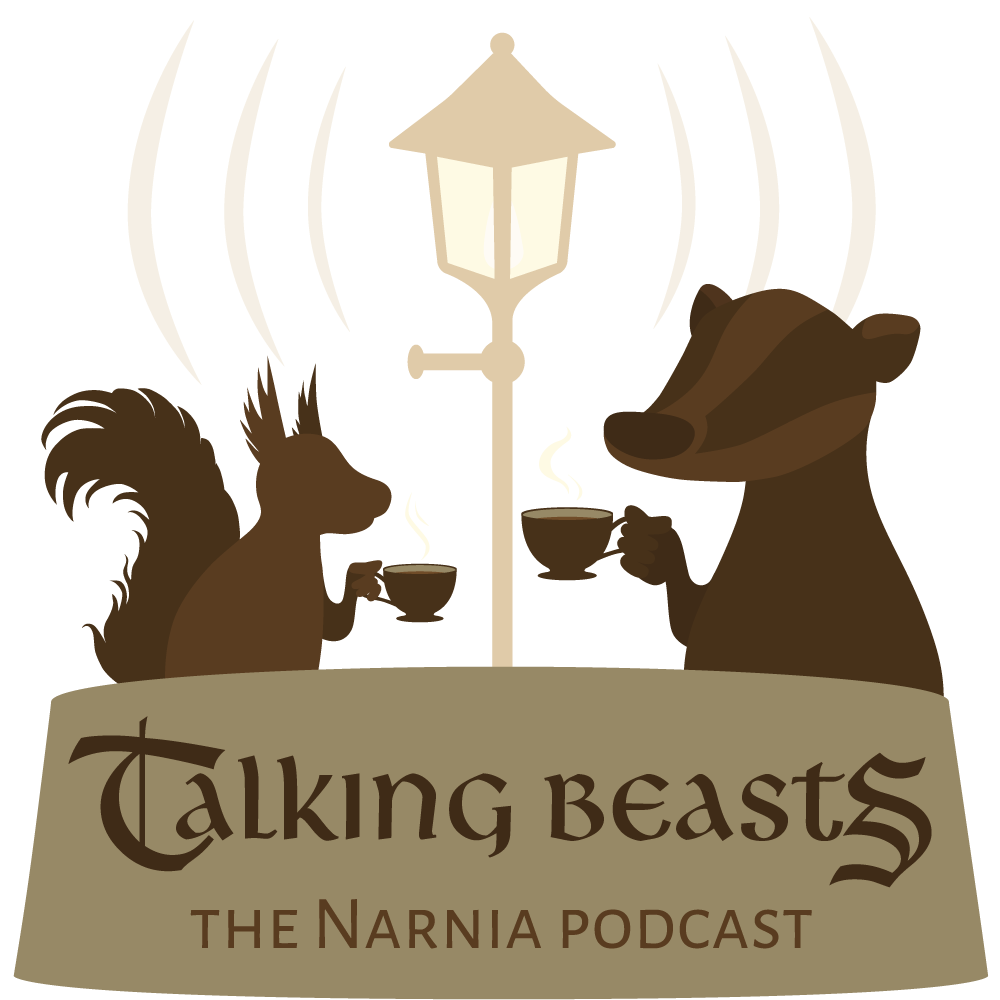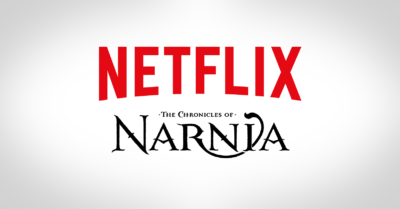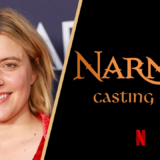“Hey Netflix, Here’s How to Do Narnia Right” | Opinion
In addition to reporting the latest news, we are going to start occasionally sharing high quality fan-generated content from around the web.
YouTuber Houston Coley has posted a video where explains what he thinks sets The Chronicles of Narnia apart from The Lord of the Rings and Game of Thrones, and expresses his hopes for the Narnia adaptations in development at Netflix.
A few prompts for the comments section:
- Do you agree that the later Narnia movies focused too much on lore and not enough on wonder?
- Coley argues that the basis of the Narnia books is “more sci-fi than people realize.” What does he mean by that and do you agree?
- What do you think he means by wanting Netflix to embrace the “weirdness” of Narnia?
Fact Check: Coley references “rumors” about Netflix developing spinoff Narnia series that expand on the canon, but this is merely speculation from fans. He also says Netflix is “patterning” their adaptations after Game of Thrones, which may be an overstatement based on comments by Mark Gordon. Here is everything we know about the adaptations in development at Netflix.
Houston Coley is not affiliated with NarniaWeb.






Interesting take and I agree with him 100% on his reasons for wanting an animated Narnia. It would really change the expectations.
I sometimes wonder if the Narnia books would be taken more seriously if the identity of Aslan as Jesus was more explicit in the way the series is presented, at least for adults. I know Lewis had the whole “watchful dragons” idea, but I think the price for trying to “hide” it (for lack of a better word) is that, once people discover who Aslan is, they often think, “Oh, I see. It’s Harry Potter for Christians. That’s cute.” And then they just dismiss it as an uninteresting and preachy allegory.
However, what Narnia actually is – a what if story about God creating a fantasy world and becoming incarnate in that world and how that would work – is really interesting. It’s a concept that I would be interested in even if I wasn’t a Christian. I think few people would dismiss something like the Divine Comedy or Paradise Lost because they’re “Christian books” and I think the same could – and should! – be true for Narnia.
“It’s a concept that I would be interested in even if I wasn’t a Christian.” This.
It drives me crazy that people’s eyes glaze over when they pick up on the similarities to Christianity in Narnia. I’ve seen people dismissively call Aslan “Jesus Lion”… but I don’t see how that’s not an objectively interesting concept?! 😛 Why do our brains want so badly to categorize these sorts of things as boring?
I’m a Christian, but if there was a similar fantasy/fairy tale book imbued with Buddhist or Islamic or Hindu (etc) themes/concepts written by a follower of one of those religions, especially someone who really knew their stuff, I’d definitely be curious to read it because it’s bound to be interesting. I mean, why wouldn’t it be?
Further, too many people look at Narnia and think C.S. Lewis was trying to indoctrinate kids about Christianity, when in reality he was a devout convert from atheism who thought very, very deeply about his faith. Even if he wanted to, I don’t think he could have written a book that didn’t involve these concepts and themes in some way; he was too interested in them.
/endrant 😛
I feel like there isn’t nearly enough conversation about (or acknowledgement of) just how unique and downright strange Narnia is, and this video does an excellent job talking about it. *applauds*
I absolutely want Netflix to embrace Narnia’s weirdness. Bring on Father Christmas and beavers with sewing machines and Star People and Greek gods and a Lion singing creation into being. I want all of it!
The Chronicles of Narnia are unlike anything else on the bookshelves or on the screen, and they shouldn’t shy away from that fact. Let Narnia be Narnia. <3
“Let Narnia be Narnia” sums it up perfectly!
I think Netflix can totally afford to make Narnia unique given the plethora of Game of Thrones-wannabes it has right now. It can still be a medieval fantasy (one big reason why I love it) but it can at the same time retain it’s own feel, maybe even set its own new trends. Instead of having Narnia be caught in something else’s shadow, it can cast it’s own, huge, lion-shaped shadow as long as the creators stick to what makes it great (as this guy points out).
I think part of the problem is frankly how poorly written so much “Christian fiction” is – largely, I think, because the authors tend to start from a message and then build a story around it instead of just telling a story and letting the message come through naturally. And, yes, a lot of it is preachy. It’s well intentioned, but it often just comes across as insincere or manipulative. Because of that, I think a lot of people have a bad taste in their mouths.
*is suspicious*
*then notices some of Lewis’ Signature Classics are sitting on his shelf*
*suddenly realizes this guy has great taste, and decides to stick around*
Wow, he had a lot of great stuff to say. I never realized how unique and wonderfully strange Narnia is! Also, I never really fully comprehended the sci-fi multiverse element to Narnia. This was very interesting to watch. 🙂
A sad but true thing about the TV/film industry is that a lot is based around what the higher ups think will make money. Thus, those persons in power many times want a repeat of patterns that have made other works successful because they desire the same kind of financial rewards they have seen elsewhere.
There are countless stories about films and TV shows that have become immensely popular and lucrative where initially, the makers of those films had uphill battles to use their best creative ideas because their ideas were unusual or didn’t fit an established pattern. Being unusual can sometimes be immensely successful in the end.
Among other things, embracing the “weirdness” of Narnia means not trying to shoehorn it into pre-established patterns just for the sake of trying to ensure profit. If the creative team for the Netflix project understands this, they will accept that, like Aslan, Narnia stories aren’t “safe” (fitting maximum profit-making formulas) but they are good!
I only want the return of original cast, in Narnia with they like kings and queens. This will be amazing.
I agree with him on a lot of his points, but disagree slightly on his comparison to Alice in Wonderland.
For me, Wonderland always felt like a metaphysical realm – more of a lucid dreamscape than an actual physical reality.
Narnia however is very firmly a “real” place in my mind. Sure it has a lot of fantastical elements, but as a place it still exists in the physicality of the real world.
That is one of the key things that I wouldn’t want them to lose – Narnia isn’t a dream world, it isn’t a trippy existential escapism world – it’s an actual world that (by-and-large) obeys the laws of physical reality.
Lol @ scanning the bookshelves!
Please don’t make Narnia into a computer game or make a series that resembles it. I was afraid something like that might happen, although I hoped for something closer to the books since apparently Douglas Gresham will still have some authority in the project. I would like Narnia to look old fashioned as it did in the BBC series, but of course it would benefit from the new technology. Hopefully, there won’t be too much modernization. The books offer a world much like medieval times, and that is the way any movie or TV series should present its adaptations. 🙂
I agree with Reepicheep 775, I think much of the immediate revulsion for Narnia is because much of Christian-marketed media being… lackluster. There was a YouTube video I watched a while back about their issue with a lot of Christian/Pureflix films, but the critiques are basically the same for much of written media i.e. sermon first, story second, and intensely intended for a Christian audience (to the point it alienates or ridicules non-target audience).
So far, my gold-standard for religion in television is Netflix’s Daredevil. However, Daredevil is quite obviously NOT intended for a Christian/Catholic audience (it’s very violent), it always places story and characters first, and because of this, it is not preachy. And this is not due to them shying away from Matt Murdock’s religion either; they will flat out quote Bible verses and reference parables.
In short, there are many beats in Daredevil that really resonate because I’m a Christian, but I also know said beats would not turn away someone who practices a different religion, or is agnostic or atheist. The philosophical discussion spawned from the show is everything a religious influenced show could want. This is what at makes me sure a Narnia show *could* strike that balance between Sunday school and the erasure of all religious influence. However, even if it was perfect, I believe it could still initially suffer from the aforementioned revulsion of religious associated media until word of mouth popularized it.
1. Dawn Treader? Definitely. The first two movies had a nice balance of both. I think Prince Caspian is an excellent adaptation given the source material is what many fans agree is the least enticing Narnian installment.
2. I guess it has to do with astrology? Not completely sure…
3. I think he’s referring to the ideologies and more joyful nature of Narnia.
I don’t know if he worded things how I think of it, but I think he nailed a lot of my biggest concerns about a Netflix adaptation of Narnia – and explained a lot of the things I’d like the creators to understand before they get started. I feel like I could *really* jump off the deep end talking about all these ideas, so I’m going to focus on what he said about Narnia being “more sci-fi than people realize”.
I think there are two important distinctions: 1) he said more sci-fi, not that it was sci-fi, and 2) that it’s more sci-fi *than people realize*. I think a lot of people who haven’t read the books – or haven’t read all of them – have some assumptions that the Chronicles are basically fairy tales and/or a Christian allegory. But the fact that Narnia’s nature as an alternate reality is part of the story is much more typical of a sci-fi story than your standard fantasy movie or fairy tale. That is not to say that it can’t exist in a fantasy story – it’s just unusual, and probably a stranger concept than most people would expect.
I’ve now rewritten this paragraph several times to avoid going off on about three different tangents on the relationship between fantasy and sci-fi, so I’m going to stop. 😉
In total agreement on that. It always makes me uncomfortable when people suggest that Narnia was just a product of the children’s imaginations – which I don’t think he meant to do, but the Alice in Wonderland comparison kind of plants the idea.
I do think Narnia is a bit of a “softer” fantasy setting (think hard vs. soft magic systems) in the sense that, many times, the books would rather leave lore details to your imagination than try to explain everything in detail. But there is definitely a line between a “softer” setting and one that isn’t real even in the context of the story – and that’s a line that I hope Netflix realizes they shouldn’t cross!
This. I’ve realized recently how many of my favorite fantasy stories take place in very non-traditional fantasy settings, Narnia among them. If you have something weird and unique about your fantasy world, you should embrace it, even market it if you have to. It’s something you have that no one else does!
I know why, but it’s very unfortunate that Hollywood doesn’t see it that way. 🙁
The TV show The Chosen is a good example of a show that has a lot of the elements we want in a Narnia show: the sense of atmosphere, the diverse characters, and feelings of true joy. Even if they change some plots in the story, as long as they have these things and don’t change the nature of the story, I’ll be satisfied.
Hi all. I’d like to weigh in on this if I may. I feel the reality is that people, especially people raised in the modern secular world, have unfortunately developed a negative attitude toward Christianity in particular, and the Biblical world view in general. It’s why I as a Christian, as well as others, find it so difficult to speak to people about Christ, the Bible and the Gospel; there just seem to be too many misconceptions, as well as an attitude ranging from subtle condescension to outright hostility. This is shown in the attitude you’ve described toward Narnia. In my view, it is precisely the Biblical elements in Narnia that make it more profound and worth reading. Even if it was allegory, I would consider that a good thing. I certainly would never even consider looking down on The Pilgrim’s Progress as “preachy allegory.” It is actually worth reading precisely because it is allegory for the sinner’s journey to Christ, and then to heaven. This is despite some doctrinal points that are not Biblical. The point is, the world as a whole has never liked God’s revelation in any age, and that has not changed now. This is why the attack seems to be directed specifically toward Christianity and the Bible. Therefore, we should not apologize for the Biblical world view at the basis of Narnia, but should appreciate and honor the series for acknowledging the true God and his revelation. Frankly, there is precious little literature that does that, and therefore, that which exists should be held up. Just a few thoughts. Sorry for the rant. 🙂
I’m glad that you’ve weighed in, Yerdif. It’s nice to read somebody besides the regular commenters, especially since your comment wasn’t rude and was intelligent.
” I certainly would never even consider looking down on The Pilgrim’s Progress as “preachy allegory.” It is actually worth reading precisely because it is allegory for the sinner’s journey to Christ, and then to heaven.”
I don’t actually like Pilgrim’s Progress much (and incidentally, I like Paradise Lost even less) but I can agree that being a Christian allegory should not disqualify a book from being great.
“In my view, it is precisely the Biblical elements in Narnia that make it more profound and worth reading… Therefore, we should not apologize for the Biblical world view at the basis of Narnia, but should appreciate and honor the series for acknowledging the true God and his revelation. Frankly, there is precious little literature that does that, and therefore, that which exists should be held up.”
I don’t really see how this makes sense. You do realize that there have been other works fiction, including children’s fantasy adventures, that have biblical elements. In fact, an entire Christian publishing industry exists. I feel like you’re simultaneously giving Narnia too much credit (acting like other Christian books don’t exist) and not enough (since it must have something besides its messages that make it famous as those aforementioned other Christian books aren’t.)
Hi Col, thanks for your response. Regarding your last comment, it’s perhaps my own lack of knowledge of what’s available out there, together with a good bit of frustration at what is considered most popular in literature and art that was behind what I said. In my experience, which I admit might be rather limited, I’ve found Narnia unique among “modern” fantasy literature.
Can you please do use a favor because The Silver Chair movie cannot be made sadly but just in case if we fans wanted to make The Silver Chair film ourselves in a different way can you please give us the script for the film that was meant to happen like David Magee’s script if you guys have it please let us know and send it to us on the Narniaweb site please thank you.
you know that you when we read the book they told use that they are student’s at the experiment house in The Silver Chair book,
if this was my film I would do add these characters into different versions from the book.
Maisie Williams – Grainne Carter. (female version)
Faye Marsay – Barbara Sorner. (female version)
Rila Fukushima – Jessica Spivvins. (female version)
Gwyneth Keyworth – Joan Bannister. (female version)
Zac Efron – Ethan Winterblott. (male version)
Taron Egerton – Ethan Jackle. (male version)
Asa Butterfield – Adrian Pennyfather. (male version)
Diogo Morgado – Cianodam Major. (male version)
Michael Cera – Eric Blakiston. (male version)
Have you guys ever heard of a holy church in Lourdes France, well I’d say that it would be a great place to call it an Experiment House well only in my own way of making the movie of The Silver Chair.
Lourdes Church as the Experiment House.
Dear Netflix, please suggest something like this. This was an amazing thing.